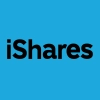Profile
| Metric | Value |
|---|---|
| Name | iShares MSCI Germany ETF |
| Assets Under Management | $2B |
| Expense Ratio | 0.49% |
| Asset Class | Equity |
| Domicile | US |
| Inception Date | |
| Net Asset Value | 43K USD |
| Website | ishares.com |
| Last Ex-Dividend Date | |
| Next Ex-Dividend Date | N/A |
Top 30 Holdings
| Name | Ticker | Weight |
|---|---|---|
| SAP.DE | 12.42% | |
| SIE.DE | 11.02% | |
| ALV.DE | 8.68% | |
| DTE.DE | 6.00% | |
| ENR.DE | 5.51% | |
| RHM.DE | 4.90% | |
| MUV2.DE | 4.01% | |
| DBK.DE | 3.54% | |
| IFX.DE | 3.05% | |
| DHL.DE | 2.66% | |
| MBG.DE | 2.49% | |
| DB1.DE | 2.32% | |
| BAS.DE | 2.28% | |
| BAYN.DE | 2.24% | |
| EOAN.DE | 2.19% | |
| HEI.DE | 1.78% | |
| RWE.DE | 1.75% | |
| ADS.DE | 1.63% | |
| CBK.DE | 1.50% | |
| BMW.DE | 1.50% | |
| MTX.DE | 1.21% | |
| FRE.DE | 1.21% | |
| VOW3.DE | 1.21% | |
| VNA.DE | 1.11% | |
| DTG.DE | 1.08% | |
| MRK.DE | 0.95% | |
| SHL.DE | 0.91% | |
| HNR1.DE | 0.87% | |
| HEN3.DE | 0.65% | |
| SY1.DE | 0.53% |
Chart
Add series to chart(max: 6)
Series
SUGGESTED SERIES
Technical Indicators
| Metric | Date | Value |
|---|---|---|
| $43.44 | ||
| $41.54 | ||
| SMA 200 vs Price | -4.37% | |
| $42.08 | ||
| SMA 50 vs Price | -3.13% | |
| 0.71 | ||
| $0.47 | ||
| 55.00 | ||
| 16.17% | ||
| 19.54% |
Dividends
| Metric | Date | Value |
|---|---|---|
| $0.68 | ||
| N/A | N/A | |
| 1.56% | ||
| $0.68 |
Country Weights
| Country | Weight |
|---|---|
| Germany | 99.24% |
| Netherlands | 0.50% |
FAQ
Does EWG pay dividends?
Yes, the iShares MSCI Germany ETF does pays dividends, with the most recent payment being $0.68 per share. The last ex-dividend date was on June 16, 2025, and the next ex-dividend date has not been announced yet
What stocks are in EWG?
As of today, iShares MSCI Germany ETF includes 59 holdings with the most weighted are SAP (12.42%), SIEMENS N AG (11.02%) and ALLIANZ (8.68%)
What is the current assets under management for EWG?
Assets under management of iShares MSCI Germany ETF is $2B
What is EWG average volume?
Average volume of iShares MSCI Germany ETF is $4M
What is EWG expense ratio?
Expense ratio of iShares MSCI Germany ETF is 0.49%
What is EWG inception date?
Inception date of iShares MSCI Germany ETF is March 12, 1996
Data Sources & References
- EWG Official Website www.ishares.com/us/products/239650/ishares-msci-germany-etf
- EWG Profile on Yahoo Finance finance.yahoo.com/quote/EWG
